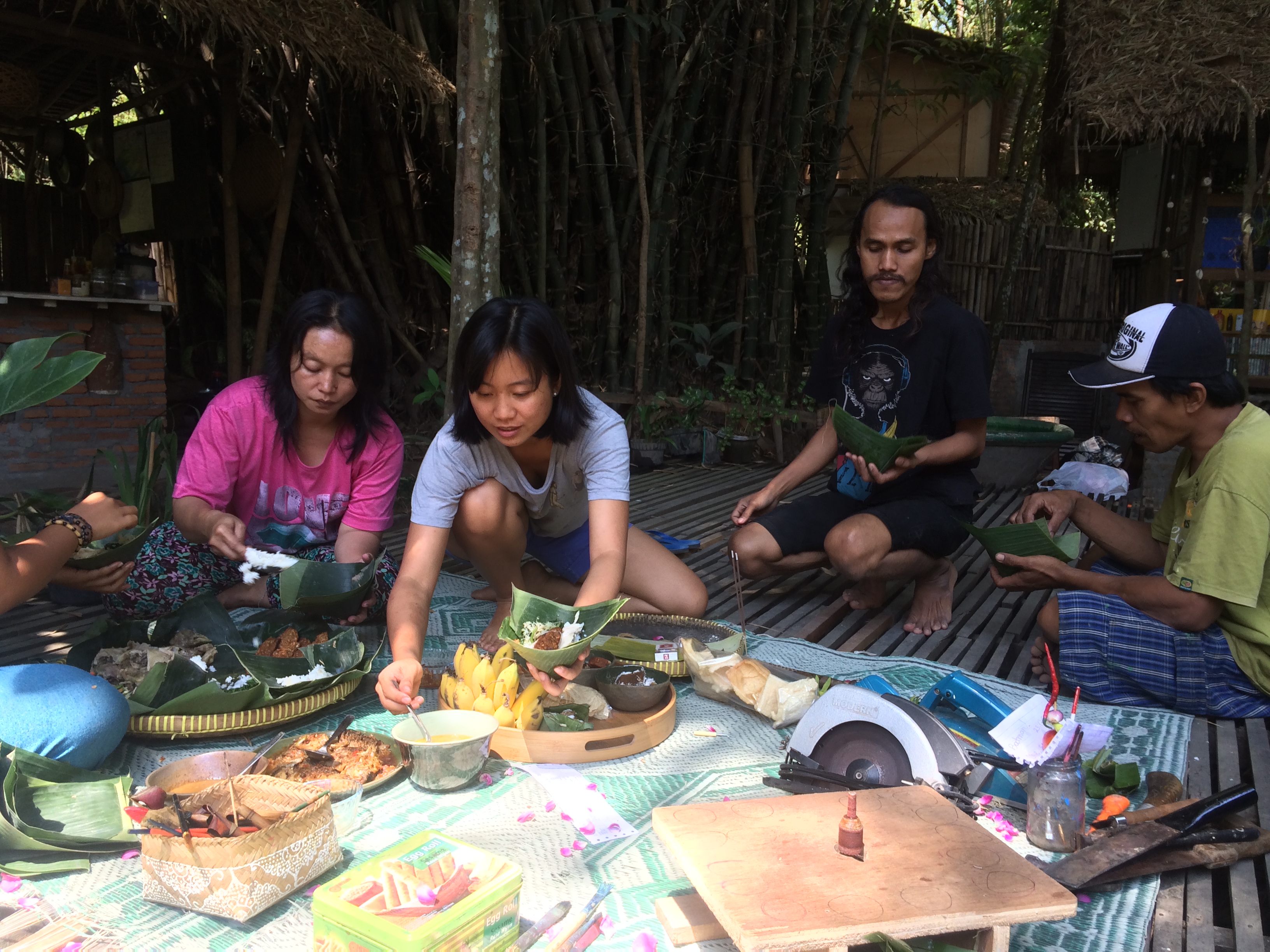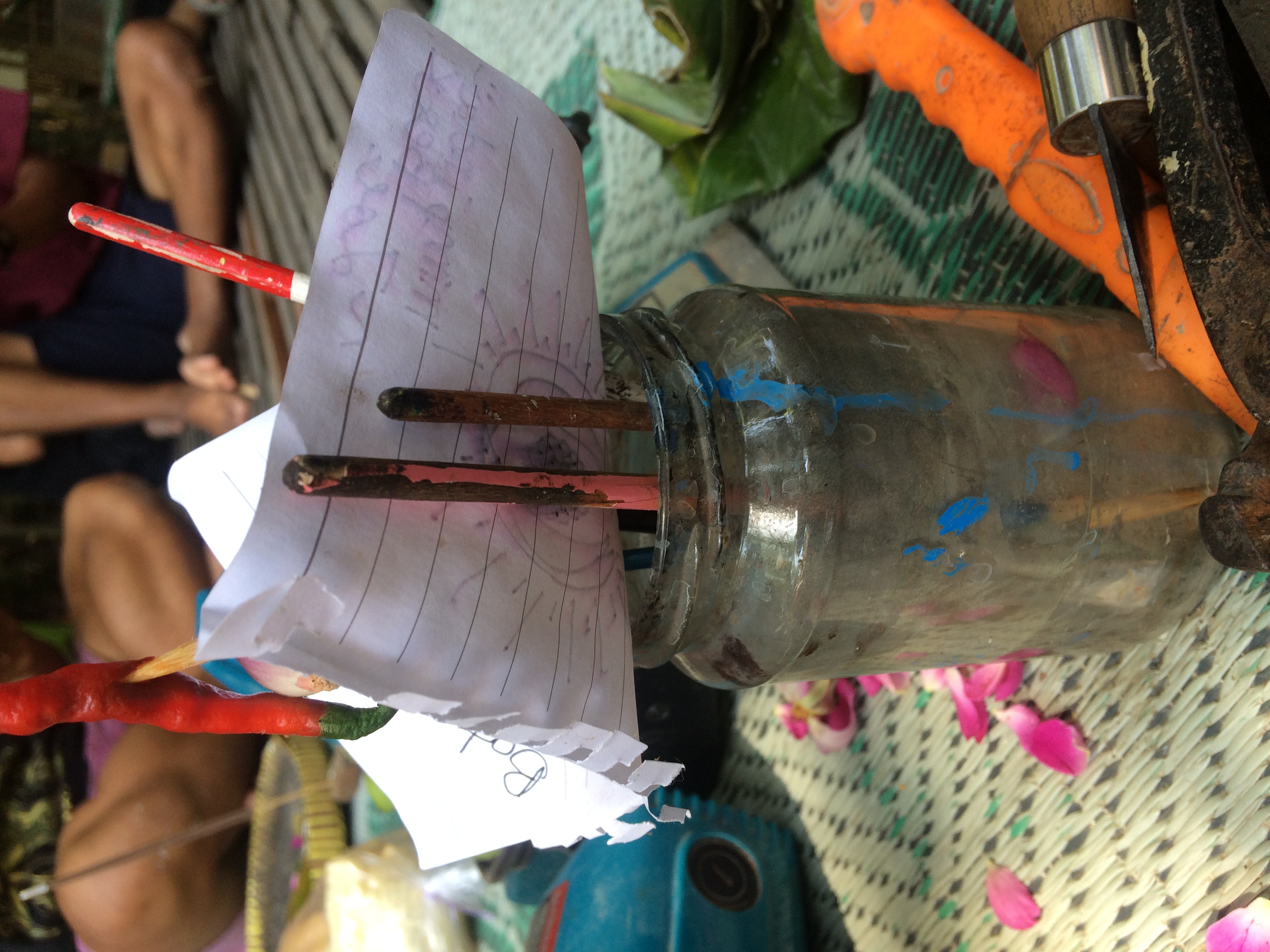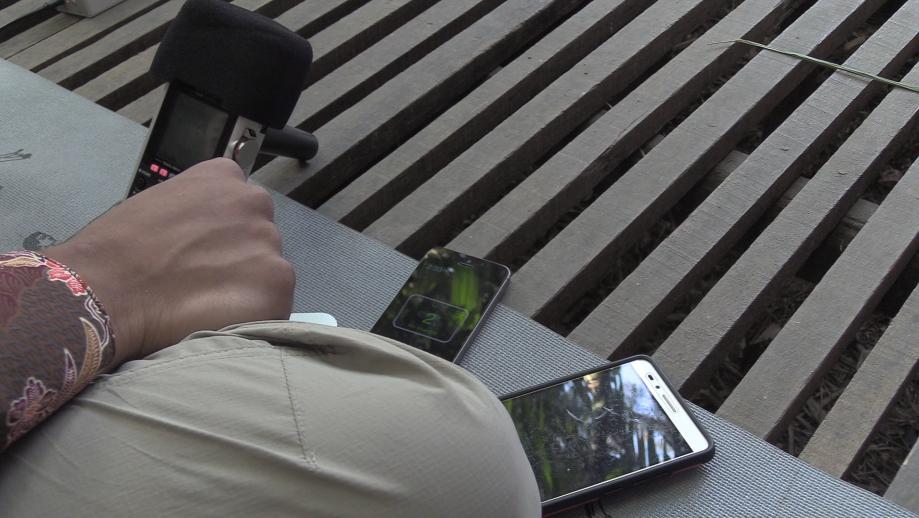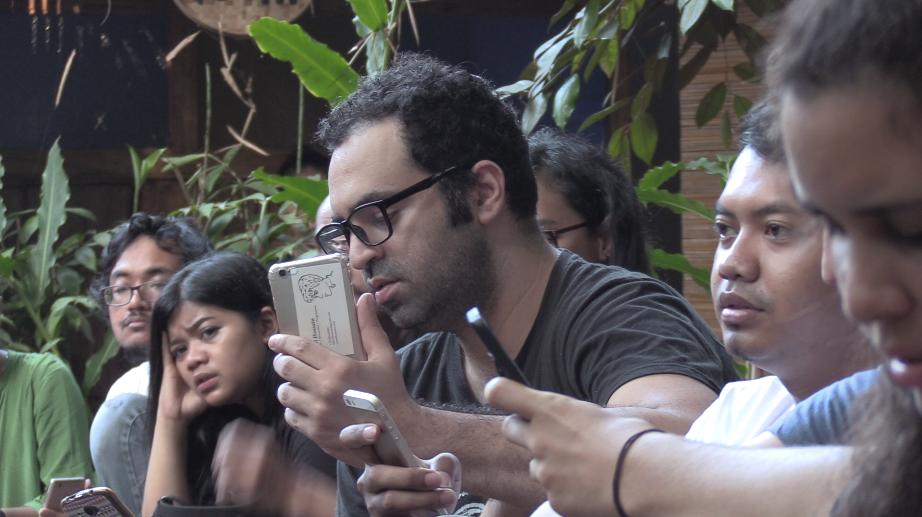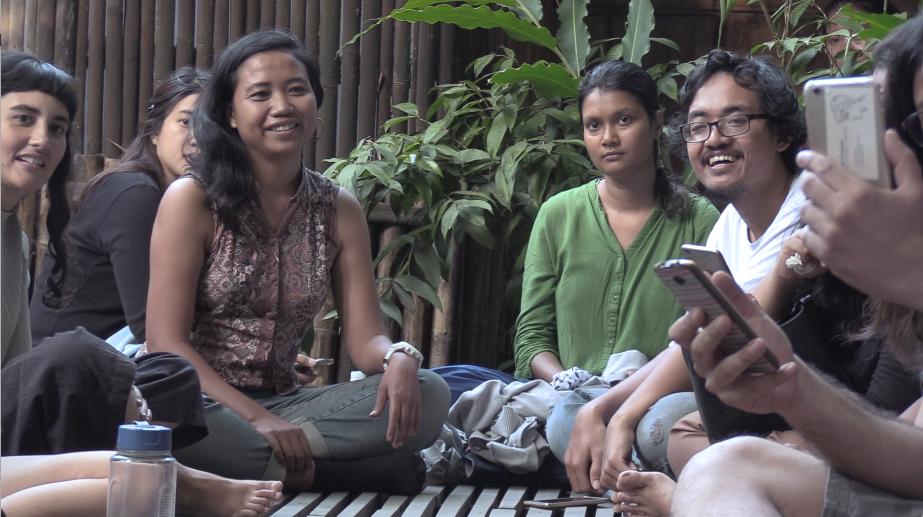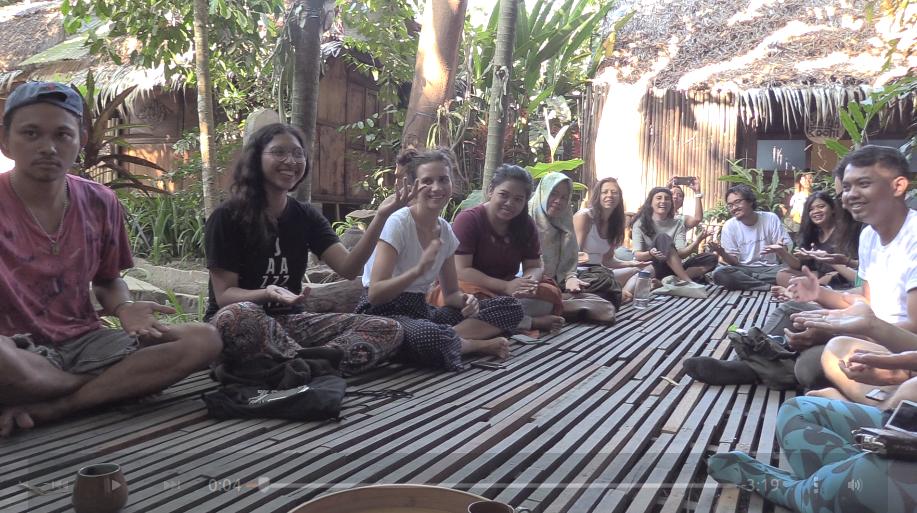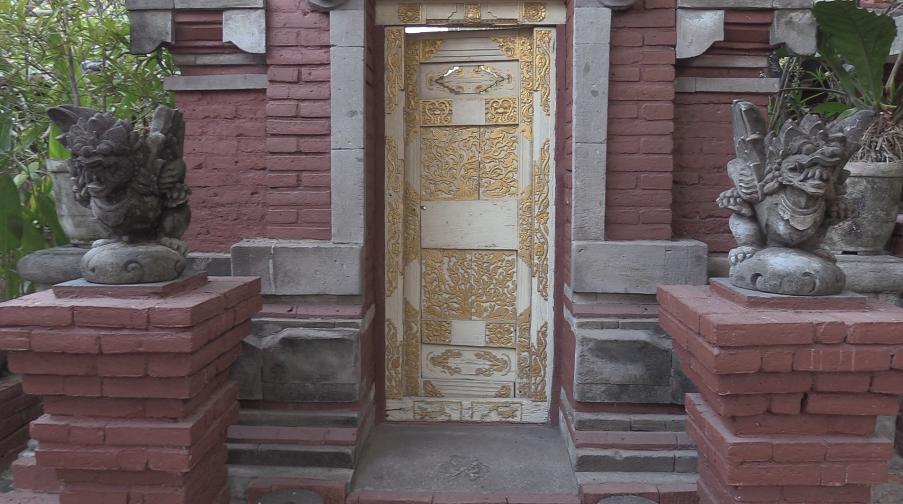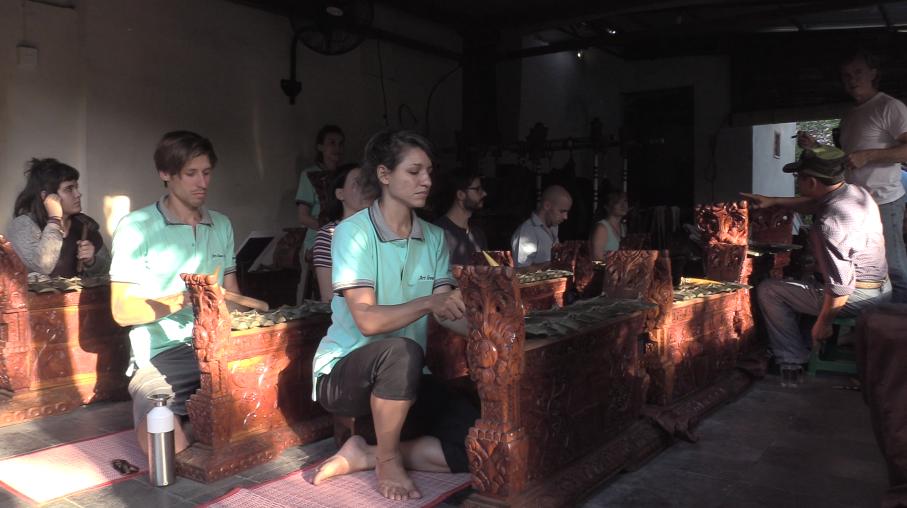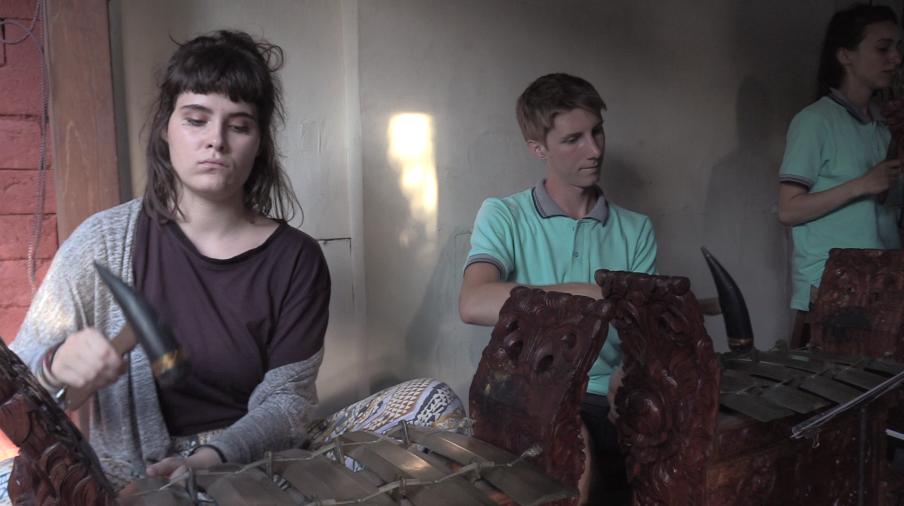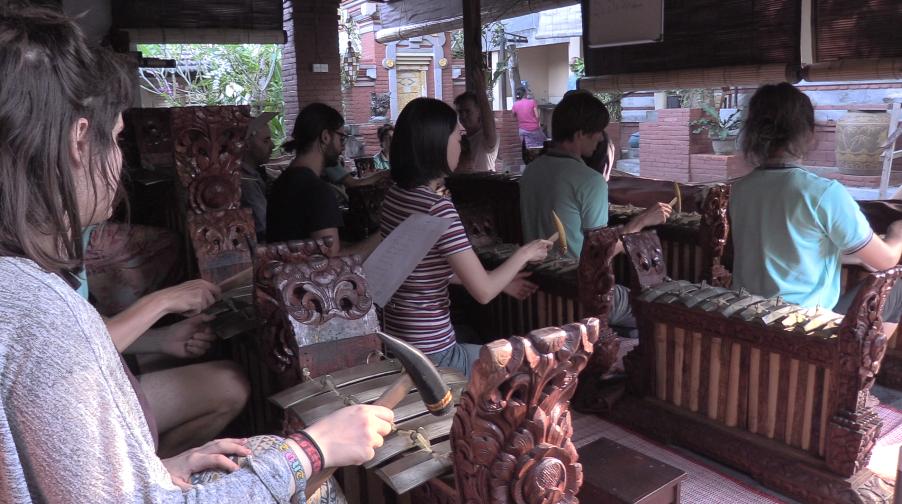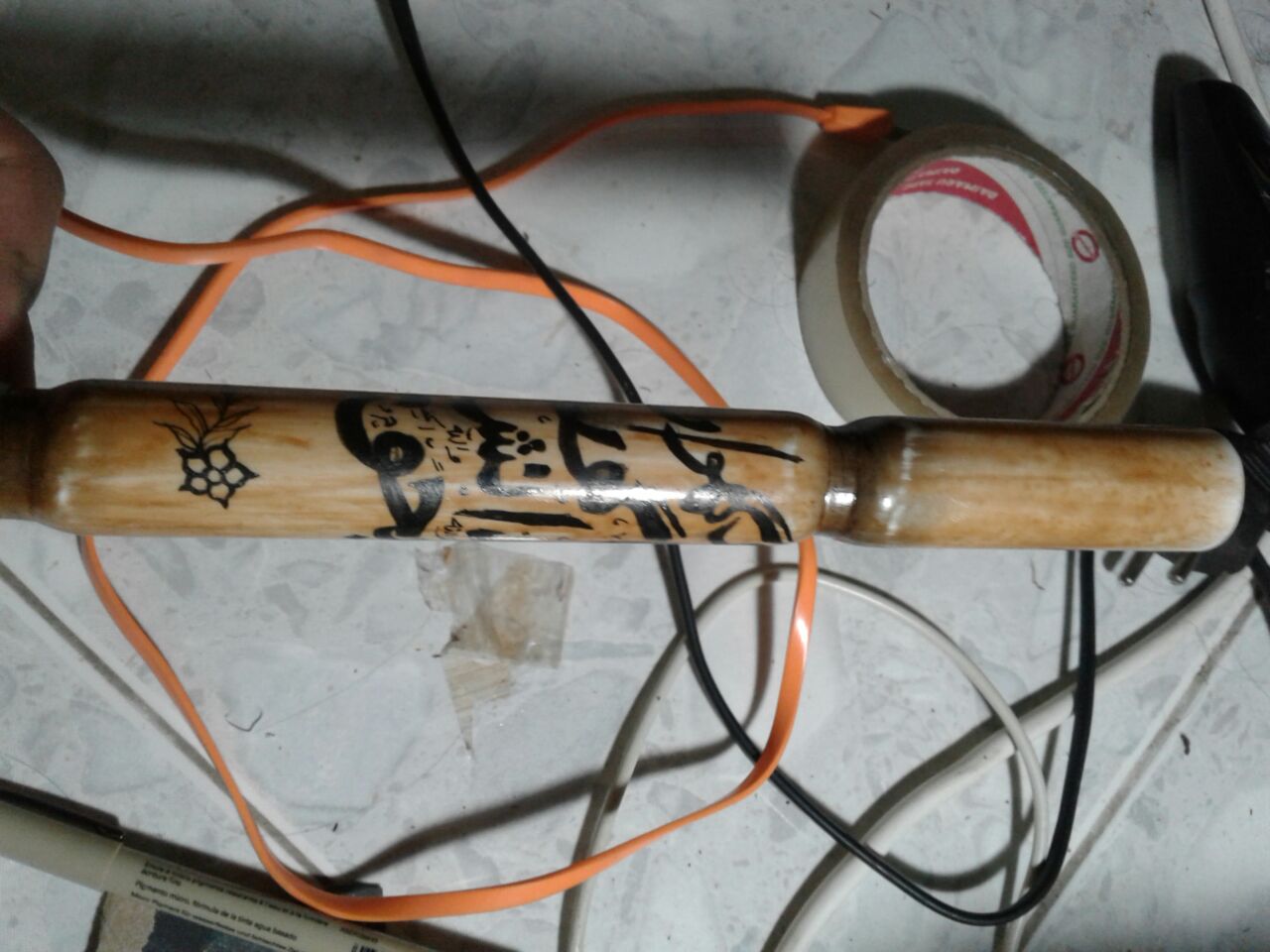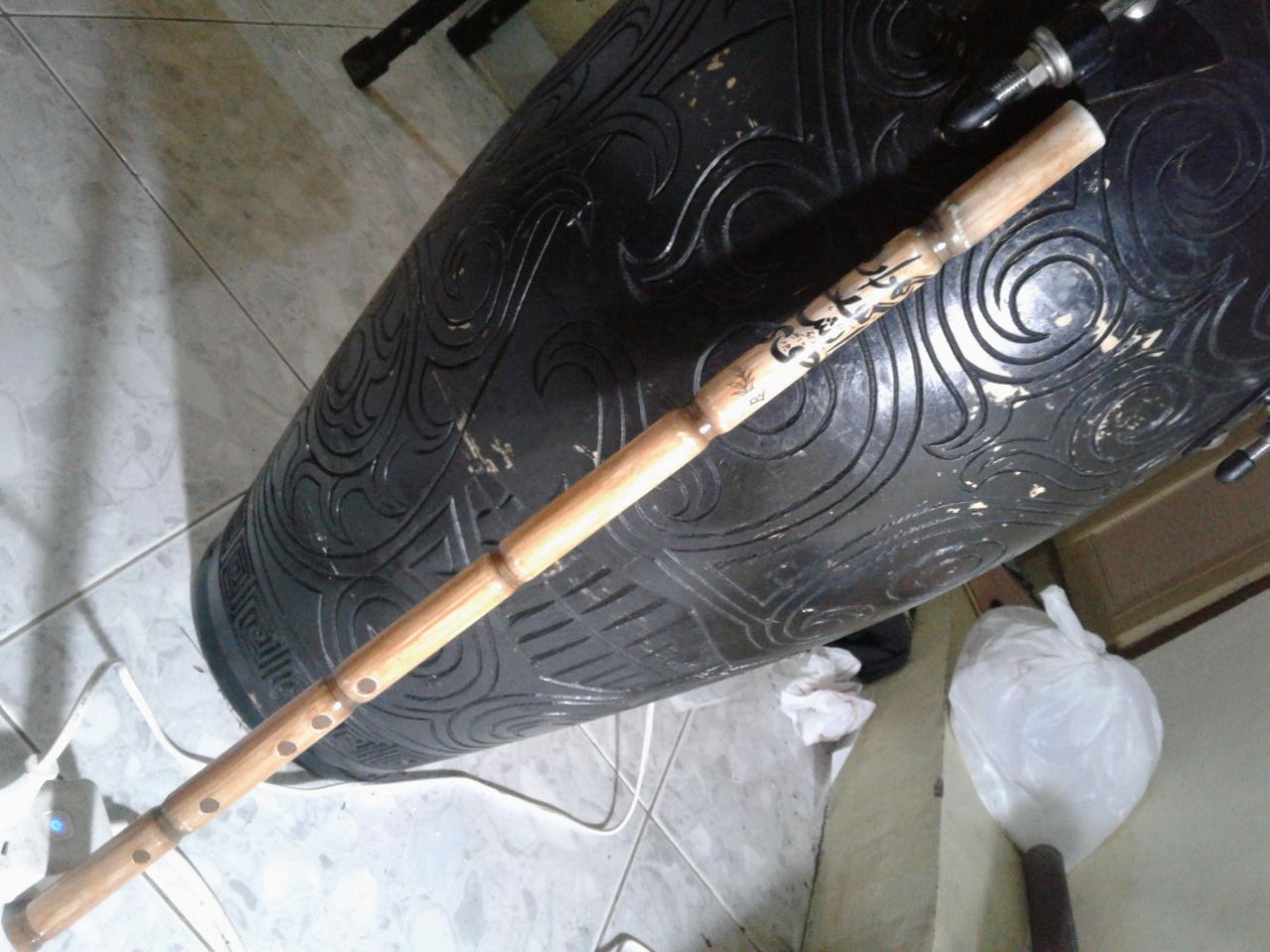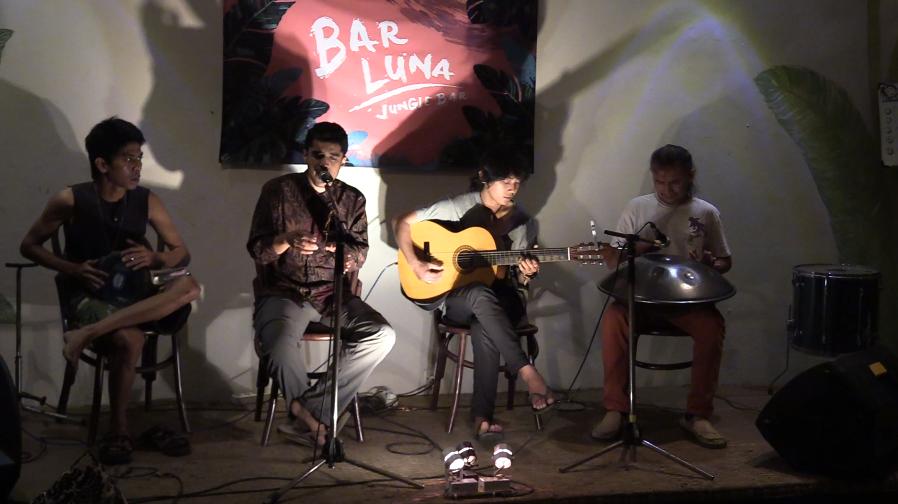Touriststan
24 Sep 2017
Reading time ~8 minutes
Saying Goodbye to Jogja With A Hindustani Vocal Music Workshop
I’ve heard that Yogyakarta (aka. Jogja) is informally known as the city of knowledge and learning, as students from around throughout Indonesia flock to the mecca for discussion, debate, and arts making. In light of this, I accepted an offer to host an elementary hindustani vocal music workshop at FrogStay on my last day there. What better way is there for one to leave such a city than sharing one’s knowledge/skills to locals eager to bolster their own knowledge/skills? The event was held a single day after it was conceived and marketed, i.e. super last minute organizing. Even so, roughly twenty enthusiastic and respectful participants showed up ready to sing/enjoy. This point deserves some more attention, because I highly doubt that such a last minute event could have been nearly as successful in many other parts of the world. I say this because Indonesians grow up with a fair amount of exposure to Bollywood music and, by extension, South Asian culture. Given their openness to embracing musical cultures other than their own and their remarkable ability at pickup up these musical cultures, I was not exactly surprised at the impressive turnout. The shared the following link to workshop materials that people followed along to with their smartphones, because printing was not feasible in the short time we had to prepare.
Narwastu Rehearsal
Despite the amazing time that I had in Java, it was really time to move on to another island in Indonesia. Thus, I’ve been in Bali for the past week or so and the difference between the two destinations is hard to exaggerate. For one, Java is a majority Muslim island while Bali is majority Hindu, so you can say goodbye to multiple adhans, dhikrs, and quranic recitations being blasted on loudspeakers in all public and private spaces throughout the day. An equally striking difference is the nearly 1:1 ratio of natives to tourists on the streets of Ubud, Denpasar, Kuta, etc (hence the title of this post, ‘Touriststan’). I have to say that I feel quite conflicted about adding to the already obscene foreigner count in Bali. I imagine that a significant portion of the native population must be fed up with having to accommodate ignorant and/or arrogant foreigners at all times. This is not to suggest that all foreigners are ignorant and/or arrogant, but a sizeable percentage of us certainly are from my own calculations/observations over the past several days. The third big difference between my time in Solo and Jogja in Java and my time here in Bali is one of cost of living. I’ve been meticulously keeping track of all of my expenditures since my very first purchase on this travel fellowship, and so far my spending in Bali has been about 4 times as much as in Java.
That being said, Bali is undeniably a really unique and awesome place. Ubud is a particularly excellent destination for fine and performing artists of all shapes and sizes. It boasts an impressive melting pot of cultures from throughout Indonesia and abroad. “World music” is all the buzz around here as local musicians and new arrivals are eager to share their musical knowledge and abilities by fusing together bits and pieces of traditional sounds. Many such people are self-taught musicians who satiate their thirsts for traditional music by parsing YouTube for inspiration. Of course, the not so nice byproduct of seeking out “ethnic” music and producing “world music” is a necessary oversimplification of traditional musics and their histories/legacies and a lack of properly treating such traditions with the understanding and care that they deserve.
Alongside the many attempts at musical fusion that I’ve witnessed here in Bali, I’ve also encountered a good amount of traditional music making. On a friend’s recommendation in Solo, I visited a couple of rehearsals of Gong Kebyar of the Narwastu Community in Batu Bulan in Gianyar, Bali. The students of the community are largely recipients of the Darmasiswa scholarship , which is a year-long grant for Indonesian language, arts, and cultural study provided by the Indonesian government. If I’m not mistaken, a large percentage of Darmasiswa students have nothing but praise for the scholarship and their experiences abroad. Having studied central Javanese gamelan at Smith College for 3/4 years in college, I was really excited to finally hear one of several Balinese gamelan genres/forms live.
Open Mic @ the Bar Luna and an Interview with Rio
Upon arriving to any new location, I inevitably face a day or two of feeling rather lonely and/or lost. Then I go to a single concert or open mic event and suddenly everything falls perfectly into place. I almost inevitably meet at least one musician with a Muslim background who is interested in my project. Such was the case this past week at the weekly open mic night on Wednesdays at the Bar Luna, one of many, many dope open mics that take place regularly in cafe’s, restaurants, and bars throughout Ubud. I ended up singing a couple of tunes with some core members of the world music fusion group Bengras. Originally from West Java, all the members of this band were born and raised into Muslim families and most of them attended some amount of religious schooling from a young age. I connected especially well with one of the band members who goes by the nickname “Rio.” With the influence of his family and his own curiosity regarding spirituality and religion, Rio is currently a practicing Muslim with a bent for Sufism (a major mystical sect of Islam). He’s self-studied a fair bit into the Islamic origin story for music making and the Sufi conception and valuation of sound and music. He reiterated one of the key ideas that I’ve been hearing on my travels regarding the permissibility of music: music is a tool just like any other tool that can be used for both good and bad. Rio mostly spends his musical time playing percussion and writing Sufi poetry to sing and accompany using his flute and ney playing.
From the perspective of someone unacquainted with the legalistic repercussions of music making in Islam, one would assume that such musical activity could in no way be interpreted as sinful or immoral, unlike certain varieties of music making that can clearly be associated with sinful/immoral activities by most holy books’ standards (i.e. rave music, hardcore/satanic rock, etc.). As a Muslim musician originally from West Java in the Hindu majority town of Ubud, Rio offered some food for thought regarding religious tolerance in Bali. He told me that in many ways he felt more comfortable making the Sufi music he makes in Hindu majority Ubud than back in his hometown in Muslim majority Bandung. Interestingly enough, Sufism and its creative expression through music and dance is repudiated by many Muslims on the conservative side of the ideological spectrum. On the other hand, Rio tells me that many non-Muslims including Hindus, Christians, Buddhists, Agnostics, etc. are quite receptive to Sufism and Sufi arts in Bali because there is a general openness to be found to embrace spirituality of all sorts especially in Ubud. Often times, new agey individuals and groups take bits and pieces of the diverse spiritual forms that one has access to in an international cultural hub such as Ubud. Additionally, because Islam is a minority presence in Bali, there seems to be a general concern for minority rights and protection for minority’s religious and expressive freedoms. In reality, things aren’t all that peachy though. There are very real feelings of resentment and suspicion that some non-Muslims harbor towards Muslims in light of recent bouts of jihadism, Islamic terrorism, and Islamism in Bali and abroad. Thus, there is an intriguing balance of views towards Muslims and their arts both in the the Hindu majority island of Bali alone and in the Muslim majority archipelago of Indonesia more generally.
Fun fact: Rio’s creative base is actually visual arts. He only started playing music a couple of years ago as soon as he migrated to Ubud. Since then, he’s taught himself enough about percussion and flutes (he makes his own flutes out of bamboo and PVC) to be able to perform nearly full time and also teach percussion. I’d estimate that about 50% of the musicians I’ve connected with in Indonesia are like Rio to some extent. Even if one is not trained in visual arts, one happens to have interests and skills in drawing, painting, sculpting, sewing, etc. in addition to one’s music making chops.
Tasty Treats in Ubud: Pt. 1
So this post is gonna be sweet and short, because I’ve been moving around way too much for me to have a substantial amount of material to blog about for this past week. I promise that I will have a variety of scrumscious foods for y’all to sample next time. Until then!
